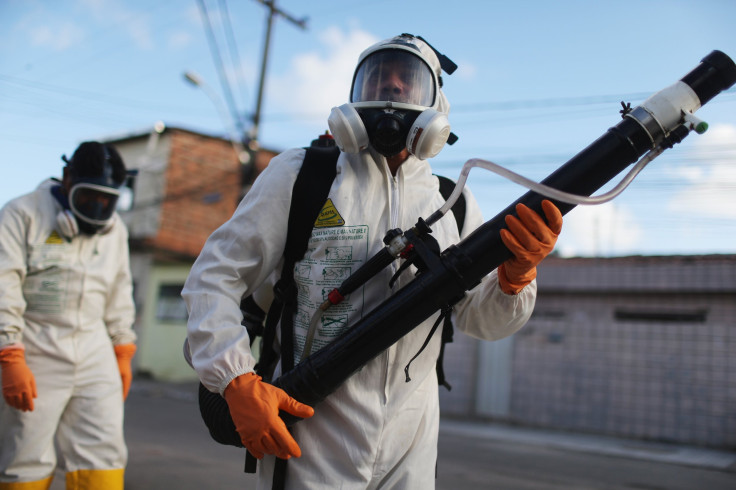Zika Outbreak 2016: Proof Of Link Between Zika Virus And Birth Defects May Take 6 Months, WHO Says

The World Health Organization said Friday that it could take four to six months to prove the link between the Zika virus spreading through the Americas and the birth defect, microcephaly — a condition that causes babies to be born with abnormally small heads.
Speaking at a news conference in Geneva, Dr. Bruce Aylward, executive director of WHO's outbreaks and health emergencies department, said doctors in Brazil had found evidence of the mosquito-borne virus in the brains of babies born with microcephaly. However, he added that researchers are yet to rule out any other potential causes of the neurological disorder.
"This does not still prove causation ... but it is an increasing accumulation of evidence in terms of the temporal–geographic association of the virus," Aylward said, according to a transcript of his Friday speech published by Agence France-Presse. The WHO declared the Zika outbreak an international health emergency on Feb.1.
The investigation testing the link between Zika virus and microcephaly was first taken up after Brazilian doctors noticed an increase in newborns with significantly smaller-sized heads last year. Since then, two U.S.-Brazilian studies have sought to confirm that the virus is responsible for the birth defect and also that it can cause Guillain-Barré syndrome, a temporary paralysis in adults.
Initial findings of two case control studies conducted by the U.S. Centers for Disease Control and Prevention and Brazilian biomedical research centers in the northeastern states of Bahia and Paraiba should be ready "this spring," CDC Principal Deputy Director Anne Schuchat told Reuters.
The virus has spread to 32 countries and territories in the Americas since Brazil reported the first cases of local transmission in May 2015. There is currently no available prevention or treatment for the infection. Local and international health organizations have focused their efforts on controlling the Aedes aegypti mosquito that the U.N. health body has reportedly described as an "opportunistic and tenacious menace."
"A lot can be done in terms of reducing the intensity of Zika transmission and the accumulating evidence is that this has got to be done and done very, very urgently," Aylward said Friday.
Meanwhile, also on Friday, Brazilian President Dilma Rousseff called for a joint effort in the fight against the Zika virus. “A mosquito cannot defeat 204 million people. We are much stronger than this mosquito,” Rousseff said, Agência Brasil reported. She delivered the speech in the country’s Pernambuco state, the region with the highest number of confirmed cases of microcephaly in newborns.
Brazil, which has confirmed more than 500 cases of microcephaly, is scrambling to contain the Zika virus, fearing that the outbreak could dampen attendance at the Olympic Games in Rio de Janeiro in August.
© Copyright IBTimes 2024. All rights reserved.




















